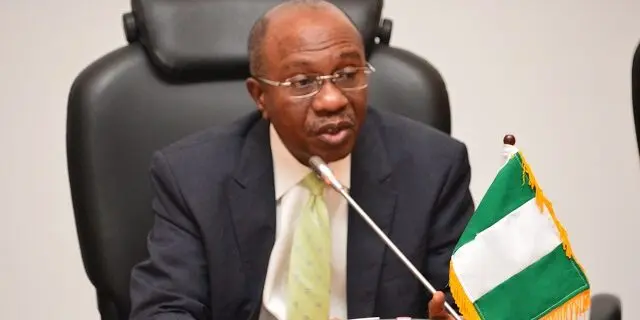By Tony Obiechina, Abuja
The Central Bank of Nigeria has surprisingly raised Nigeria’s benchmark interest rate to 18.5 per cent as inflation threatens the country’s economy.
The CBN Governor, Godwin Emefiele made the announcement on Wednesday at the Monetary Policy Committee meeting held on Wednesday.
Nigeria’s economic output declined by 2.31 per cent on cash scarcity caused by the CBN cash redesign policy.
The committee noted the uptick in Nigeria’s inflation to 22.2 per cent in April 2022 despite raising the MPR to 18 per cent.
According to Emefiele, the broad outlook for recovery suggests the economy will continue with moderate recovery due to security and other legacy challenges.
The Committee considered inflation as a major challenge, adding that the drivers of inflation are outside its control including Premium Motor Spirit supply.
He tasked the Ministry of Finance to expand tax net as this will enhance the government’s revenue which would lead to debt reduction and its impact on inflation.
Emefiele said inflation would have risen to 30 per cent if the MPC did not raise its MPR in its last meeting.
He said the MPC considered that holding the rate would reverse the success achieved in taming inflation.
The Apex Bank Governor also noted that reducing the MPR would hike inflation in the country, adding that members took a unanimous decision to raise the interest rate.
The Bank also retained the asymmetric corridor of +100/-700 basis points around the MPR; the CRR at 32.5 per cent; and Retain the Liquidity Ratio at 30 per cent.
Meanwhile, erudite professor of Capital Market, Uche Uwaleke has kicked against the CBN decision.
In a statement on Wednesday, Professor Uwaleke said the increase will not be in the interest of output growth.
He said, “The hike in MPR to 18.5% is not in the interest of output growth. Access to credit for MSMEs is further stifled.
“Besides, it may do little to halt upward trend in inflation as recent experience has shown.
“Any significant moderation in inflation rate can only come from dealing with supply side factors and structural issues fuelling rising prices such as insecurity, electricity and fuel challenges”.


